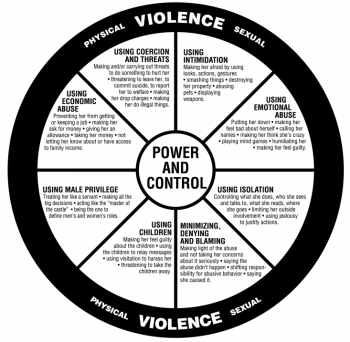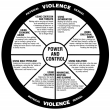Domestic violence during COVID-19
“Remember My Name” is a national registry of the lives ended by domestic violence. Ms. Magazine and the National Coalition Against Domestic Violence (NCADV) began the registry in 1994. Earlier this month, the NCADV website published the 2019 list of 106 women and children, as young as 3, with another 16 names from previous years.
After reading this some people might be thinking, ‘Well, that’s not very many;’ but they’d be wrong. One life taken due to domestic violence is really too many.
Domestic violence affects women, children, the elderly, men and family pets. For those who abuse, it’s all about power and control through physical, sexual, emotional, psychological and economic means. Isolation is one of an abuser’s tools in exerting power over their victims, and this year’s pandemic has made keeping another person under one’s thumb easier.
Imagine you are in an abusive home with or without children or pets. The only escape you, your young children and pets have are the hours your abuser is out of the home for work. For your school-aged child(ren), their escape is being in school. Imagine the range of emotions that would be coursing through your mind when you learned about the pandemic caused by COVID-19 and that the governor has issued a sheltering-in-place order. The abuser loses his job. He is home all the time. When your thoughts clear, all you can hear is the sound of a surreal clock ticking.
Abusers are from all walks of life, all religious beliefs, ethnicity and sexual orientation. Common traits include, but are not limited to: extreme jealousy, bad temper, verbal abuse, extremely controlling behavior, possessiveness, cruelty to pets, controlling what the victim can and can’t wear, accusing the victim of flirting or having an affair; and/or blaming the victim for everything that goes bad in their lives. (https://ncadv.org)
On the local front over the last seven months, Boothbay Harbor Police Department received 19 calls for domestic incidents, up from eight in 2019. Of this year’s 19 calls, five led to domestic violence arrests; in 2019, April to October there were two such arrests. Police Chief Bob Hasch noted, these numbers “aren’t perfect.” For example, the department gets a call about a loud noise, and the officers arrive and discover it’s a domestic situation, but the call was coded for the issue reported.
Hasch said the officers have observed more mental health issues on calls, some of which escalated into domestic violence situations. “People are dealing with more mental health issues during this pandemic, something none of us have ever had to deal with before. And people who were already dealing with these types of issues are having even more trouble now.”
A June, Centers for Disease Control survey on mental health issues during COVID-19 supports Hasch’s statement. These survey findings were reported in August: Of the 5,470 respondents, 40.9% reported adverse or behavioral health symptoms including anxiety disorder or depressive disorder (30.9%), those with TSRD (trauma and stress-related disorder) symptoms related to COVID-19 (26.3%), those who reported having started or increased substance use to cope with stress or emotions related to COVID-19, (13.3%).
There are a few things we can do to support our friends, family and neighbors, some who are in dire need. For those of us in Lincoln, Knox, Sagadahoc and Waldo counties, New Hope For Women offers a 24-hour hotline (1-800-522-3304) answered by trained volunteers. Often, family and friends call for advice about a loved one they believe, or know, is living with domestic violence. Check in on them if you are able. Just knowing you are not alone is vitally important when you’re living in fear every day.
There are also ways to observe National Domestic Violence Awareness Month even during a pandemic. At Rising Tide Co-op in Damariscotta, every Wednesday is Co-op For Community Day and 5% of that day’s total sales are donated to a community organization. This month’s recipient is NHFW.
Contact NHFW to find out about becoming a volunteer for the hotline. When the pandemic’s over, volunteer to help at a fundraiser. Find out what local organizations or groups are doing and join them.
Purple is the color representing domestic violence. Hang some purple lights on one of the trees or shrubs in your yard, or display just one single electric candle with a purple bulb. Wear a purple ribbon pin. Show your solidarity with victims and survivors.
Educate yourself. Said Southport resident and NHFW community advocate and educator Mary Hanley, “Learning about domestic violence is unpleasant, but if we (NHFW) can help someone learn how to be there for someone else, that’s tremendous.”
Event Date
Address
United States












































